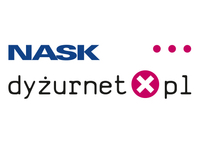Niewiadomska-Szynkiewicz, E; Sikora, A; Arabas, P; Kamola, M; Mincer, M; Kołodziej, J
The energy awareness is an important aspect of modern networks and computing systems design and management, especially in the case of internet-scale networks and data intensive large scale distributed computing systems. The main challenge is to design and develop novel technologies, architectures and methods that allow to reduce energy consumption in such infrastructures, which is also the main reason for reducing the total cost of running a network. Energy-aware network components as well as new control and optimization strategies may save the energy utilized by the whole system through adaptation of a network capacity and resources to the actual traffic load and demands, while ensuring end-to-end quality of service. In this paper, we have designed and developed a two-level control framework for reducing power consumption in computer networks. The implementation of this framework provides the local control mechanisms that are implemented at the network device level and network-wide control strategies implemented in the central control level. We also developed network-wide optimization algorithms for calculating the power seeting of energy consuming network components and the energy-aware routing for the recommended network configuration. Utility and efficiency of our framework have been verified by simulation and by laboratory tests. The test cases were carried on a number of synthetic as well as on real network topologies, giving encouraging results. Thus, we come up with well justified recommendations for energy-aware computer network design, to conclude the paper.












